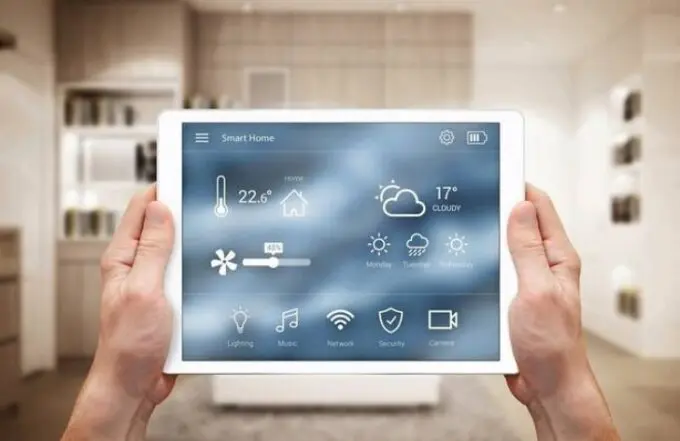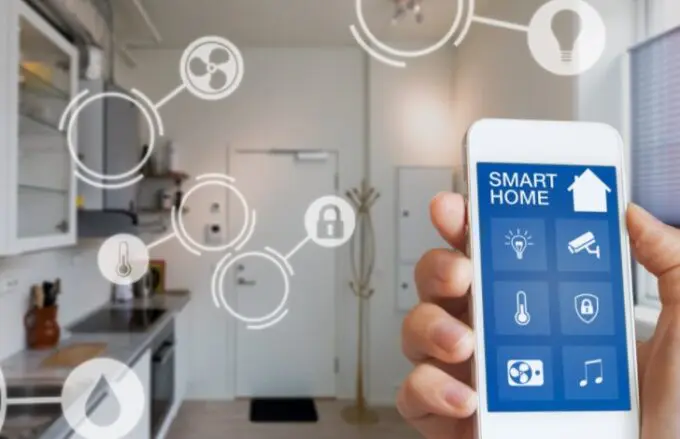Breaking news: The future is here. Technological advancement has brought smart home devices into existence and big tech companies have made these gadgets accessible in the market for consumers who have a tech-savvy streak. According to the latest research, the number of smart homes is skyrocketing and is expected to hit 350 million by 2024 on a global scaleDevices
But, what are those devices, anyway? The quality of ‘smart’ is applied to the devices, gadgets, hubs, and systems that are supplied with enhanced computer chips and processors, allowing them to perform tasks more efficiently and independently, saving time, money, and effort on part of the users.
These automated devices use machine learning to carry out encoded actions in the best way possible and even communicate with other devices in the vicinity over the in-home network to create a ‘smart home’.
If you are thinking about turning your regular household into a state-of-the-art of the future, then you should consider the following factors before going on an all-out shopping spree.
Can Your Wi-Fi Handle It?

First things first. Evaluate your internet connection and see if it is up to the mark. Why? Because these devices rely on a solid in-home network to not only function properly but also to communicate with each other. The internet enables a smooth flow of data between the devices and makes a real-time exchange of information possible. So, start by analyzing your home internet.
Unfortunately, the usual run-of-the-mill network devices, such as Wi-Fi routers, available in the market may not be able to support your tech. You may come to need a high-tech router with advanced standards and specifications to build your smart home. The good news is that almost all ISPs offer dedicated equipment depending on the level of speed you’ve selected.
Speaking of speed, your Wi-Fi should be fast, reliable, and consistent to power your devices. Interested in breathtakingly fast download speeds and unlimited Wi-Fi? Check out here.
Which Smart Home Devices Complement Your Lifestyle?

Being a conscious buyer is key to building a smart home. You cannot just head to the market with a blank slate and buy every single device off the shelf. Plan your purchases carefully. Which parts of the house do you want to automate?
Do you wish to invest in smart lighting, a smart thermostat, and smart switches to save up on energy? Or, do you prefer reinforcing your home security with a smart doorbell, smart locks, and smart motion sensors? Or, would you simply like to upgrade your lifestyle with smart speakers, smart coffee makers, and smart TVs? It is all up to you.
Do your research. See which devices suit your needs the best and have the potential to really make a change. Read up on customer testimonials and compare companies. Otherwise, you’ll have a horde of unwise purchases sitting in your basement and eating dust.
Do Your Chosen Smart Home Devices Allow Centralized Control?

One of the main reasons why anyone goes for smart home tech is to remove the menial labor from the equation and replace it with delegated convenience. In other words, people buy those devices to make their lives simpler and let technology finish their tasks for them.
No matter how smart, automated devices still rely on human commands to work. At the end of the day, the control lies in your hands, and you don’t want to make home management more difficult than it already is by inviting incompatible devices into your smart home network.
So, make sure to check whether the smart home devices you are purchasing integrate well with your home hub and assistant. For instance, if you have Alexa spicing up your life, then buy smart products which are compatible with Alexa. Amazon lists such smart home devices on its site.
Once you harmonize and unify your smart home systems, you will have a great time handling multiple devices with one swish of your wand. Don’t buy extra accessories that create clutter for you. Dial down the hassle by investing in smart home gadgets that can be controlled from one app on your smartphone.
Should You Go DIY or Appoint a Professional for Installation?

Before you go ahead and grab your toolkit, read the instructions on the user manual. Smart home devices are not always easy to install on your own. While some may come with a plug-and-play efficiency, others might require drilling into walls or altering the wiring, which, if you’re not a technician, can turn ugly instantly.
Things may get worse if you live in a rental space and your agreement doesn’t allow infrastructure changes. So, plan your smart home installation wisely. Consult with your proprietor prior to tempering with the living space. Choose a DIY setup for simple-to-install home devices and save some bucks in the process.
Similarly, don’t hesitate to appoint a professional technician for installing heavy-duty smart home systems. Most smart home companies offer installation and maintenance services. You can sign up for yearly plans and keep your smart home in tiptop shape.
Is Your Smart Home System Safe & Secure?

The internet is an open ocean and hides threats beneath its waves. If you are not careful, you can end up infecting your whole smart home network and losing not just your money, but your confidential data and private information. The last thing you’ll want is a rogue smart home device turning your life upside down!
As we already know, home devices work via internet connectivity. So, reinforce your network security before connecting new smart home devices to your home internet. How? There are several ways you can go about it.
For starters, get robust internet security software that can smell a threat from a mile away. Protect your network with a unique password. Disable the SSID. Create a guest network for your smart home tech as a pre-emptive, so even if your network gets hacked in the worst-case scenario, your private data will be saved. So on and so forth.
The Bottom Line
Building a smart home is a commendable move. However, you need to consider the aforementioned factors before purchasing a smart home device outright. This way you’ll make a sound decision in your acquisitions and enjoy the full benefits of home automation.









